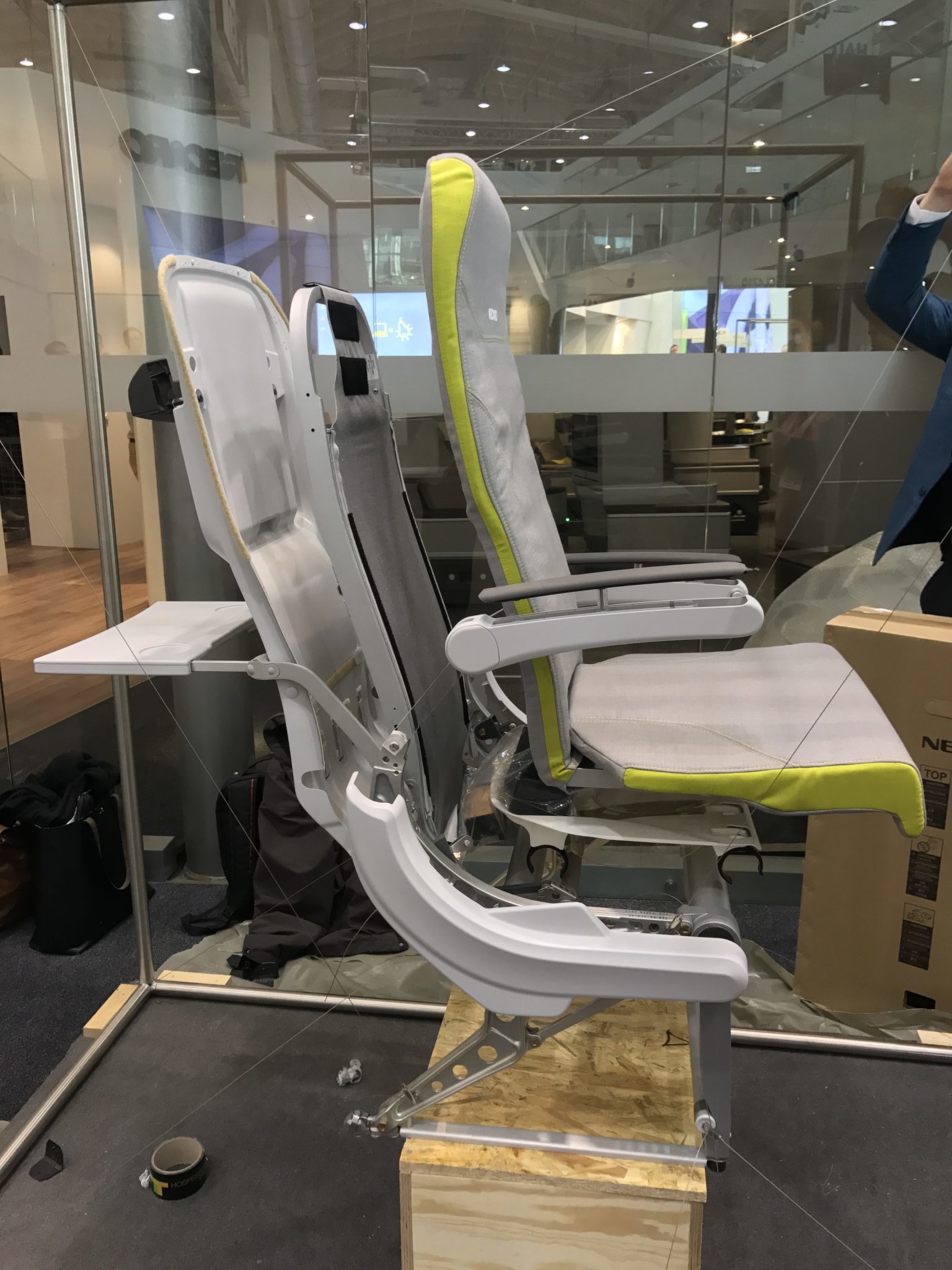 As one of the few women in major engineering roles within aviation seatmakers, Recaro’s Mirjam Bruhns stands out for more than just her unusual career track, and she provides an inspirational example — and some heart-to-heart advice — for anyone from a non-traditional technical background considering work in an engineering field.
As one of the few women in major engineering roles within aviation seatmakers, Recaro’s Mirjam Bruhns stands out for more than just her unusual career track, and she provides an inspirational example — and some heart-to-heart advice — for anyone from a non-traditional technical background considering work in an engineering field.
Her early career after studying economics started in purchasing departments, first at the German conglomerate Bosch and then at Diehl Aircabin, then a full subsidiary of Airbus but now part of Diehl Aviation, as a project buyer for crew rest compartments.
The aviation industry was a change from the “well structured” Bosch, Bruhns says, nothing that she “really could change things, the way you work, the way you think, the way work with people, and this was fascinating me.”
After working at Diehl and elsewhere in Airbus, Bruhns brought her ten years of experience in purchasing and supplier development to Recaro in 2007 to establish an overarching purchasing department. “Before then,” Bruhns tells Runway Girl Network, “purchasing was organised in project purchasing, and every one of the fifty purchasing people dealt with the same suppliers, quoted them for their parts, and set priorities. And then the supply chain at a certain point said “we can’t handle it anymore.”
“We decided,” Bruhns explains, “to split, and to get the buyer’s knowledge about metals, about plastics, and to make specialists out of them — and to have another group that builds the link between purchasing and the project. This group I introduced and I led for three years.”
Chief executive officer Mark Hiller later asked Bruhns to move to the company’s quality department, and after two weeks in the role the director of quality departed and Bruhns stepped up into the position. Two years ago, Hiller and Bruhns had a subsequent conversation about moving upwards into the vacant role of the director of operations.
“In the first discussions I was not very happy about it,” Bruhns admits freely. “First of all, I liked quality very much, you have oversight function, and by all the auditing you see how the different departments develop and you have operational issues, but also quite strategic issues.”
“Operations was also for me — for somebody who was so long term in the company — very difficult because people on the shop floor, they are different from engineers, from quality engineers,” Bruhns says. “They had other interests, and it was difficult to find a way to speak to them and to find a way to motivate them. I had, in my responsibility, more than 450 employees, so it’s a big department.”
With substantial success by Recaro in producing seats on time, to specification and to quality, Bruhns’ tenure as director of operations speaks for itself.
When RGN asks Bruhns if she would recommend to others in the industry the path she took to be a director of operations, she sits back in the chair in her production floor office and thinks for a long moment.
“It is a path I would recommend. For me, the first step already was to leave purchasing where I knew my surroundings, I knew the rules, I knew how to contract, how to negotiate, as so on. Then to go to quality this was the first step. And the biggest step, in my opinion, to leave what you know and what you feel comfortable with the first time. If you did it once you can also do it another time,” Bruhns says. “I loved purchasing, I liked to talk to people and do this ‘gambling’ with them — ‘I do not want to buy your stuff, you are too expensive’. Quality and operations is more internal, you cannot travel so much, you do not have so much contact with external people.”
“So the big step was to leave at first and to do something different, and I would recommend it. I believe that women are still too shy to do so, and not confident enough,” Bruhns believes. “This was the same for me running operations: I had no experience, I had no background in it. Can I be successful? This is always the question. Because if you start you want to win, you want to create something that’s working. You want to be beneficial for the company and you do not want to say after one year, oh, I can not manage it.”
“This was for me a process where I [was] also always very critical [about] what are my habits and what are my capabilities, exactly,” Bruhns explains. “This is also something that — when I talk to women — I always see this with women. With men they say, ‘hey, I can do it, I can do everything’, and women say, ‘oh, I have to think about it, I do not know’. We are too shy.”
With courage, Bruhns suggests, women can leverage their experience and diverse communications styles into becoming effective and industry-leading technical managers — and Bruhns is certainly one of those.
Related Articles:
- Airbus, Recaro plan new interior for route-proving A330neo
- Recaro’s new BL3710 slimline drops a kilo, adds knee space
- Vantage-Recaro-RAVE is new ‘standard’ for flydubai 737 MAX 8s
- Recaro CL6710 launch partner change down to engines, not seats
- El Al picks Recaro for compact staggered 787-9 business class
- Recaro, Airbus promise flexibility with reconfigurable economy pitch
- Recaro evolves CL6710 business class concepts into seat offer
- Recaro lands 9000-seat BA, Iberia shorthaul Airbus fleet order
- Recaro talks customisation in a modular world













